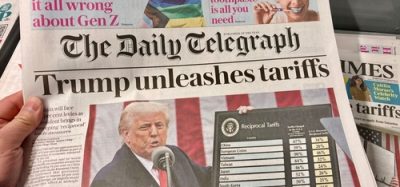Regulation: How Brexit is shaping up
- Like
- Digg
- Del
- Tumblr
- VKontakte
- Buffer
- Love This
- Odnoklassniki
- Meneame
- Blogger
- Amazon
- Yahoo Mail
- Gmail
- AOL
- Newsvine
- HackerNews
- Evernote
- MySpace
- Mail.ru
- Viadeo
- Line
- Comments
- Yummly
- SMS
- Viber
- Telegram
- Subscribe
- Skype
- Facebook Messenger
- Kakao
- LiveJournal
- Yammer
- Edgar
- Fintel
- Mix
- Instapaper
- Copy Link
Posted: 30 November 2016 | Jerry Houseago, Consulting Director, NSF International EMEA | No comments yet
For the food industry, nothing has changed as a result of Brexit – yet. Jerry Houseago, Consulting Director, NSF International EMEA, looks at the longer-term implications for the food industry…


It started in January 2013 when David Cameron pledged to hold an in/out referendum on the UK’s membership of the EU as part of his general election campaign. It wasn’t the major plank of Conservative policy and later came back to haunt him on the steps of Downing Street on 24th June 2016. A vote of 51.9% to leave was sufficient to defeat the 48.1% ‘remain’ tally as the referendum required only a simple majority. The first consequence of the vote was a change in Prime Minister, with Theresa May being elected leader of the Conservative and Unionist Party and taking office as Prime Minister on 13th July.


The longer term consequences of the referendum are that the UK must trigger the separation process by invoking Article 50 of the Treaty of Lisbon and negotiating the terms of the separation and the subsequent relationship with the EU. The Prime Minister has indicated that this will happen before March 2017. The Treaty of Lisbon then allows for a two-year process to negotiate the terms, unless all remaining Member States agree to an extension of the negotiations. Some Member States have already indicated that they would not agree to this and would want the separation to proceed as rapidly as possible. A further issue is whether Parliament needs to ratify the use of Article 50 or whether the PM can exercise royal prerogative to initiate it. A legal challenge in the High Court that a parliamentary vote is required is to be defended by government lawyers. In summary, the very earliest leave date will be January 2019.
“Brexit means Brexit”, Theresa May famously said as she entered Downing Street. It was important for her to state this early on as she had been an active ‘remain’ campaigner. However, this only means that the UK is leaving the EU, not that the terms of the separation and subsequent relationship are defined, let alone agreed by the electorate. The essence of the problem with the referendum is indeed its simplicity. The question was only leave or remain. The referendum itself did not consider or decide the terms of the continuing, separated relationship.
The rest of this article will be available in issue 6 of New Food, in print and online – to read what else Jerry has to say on the topic of Brexit be sure to subscribe here.
Related topics
Related organisations
Food Standards Agency (FSA), The Food Safety Modernisation Act (FSMA)








